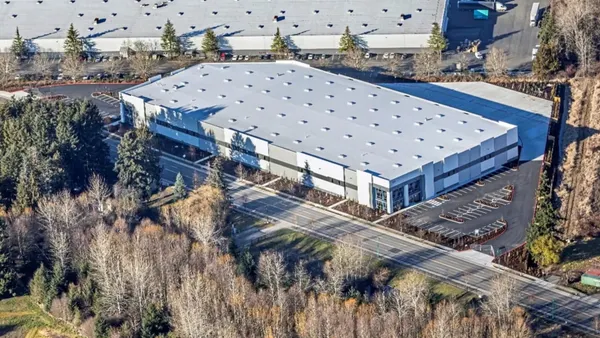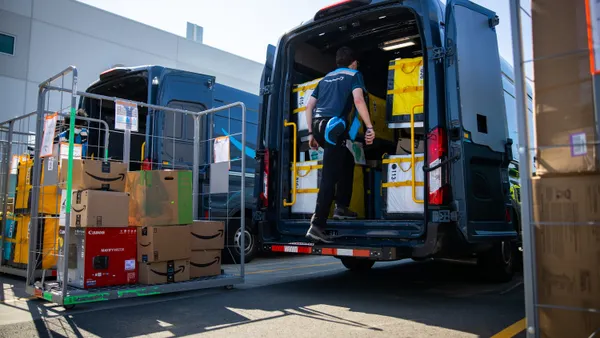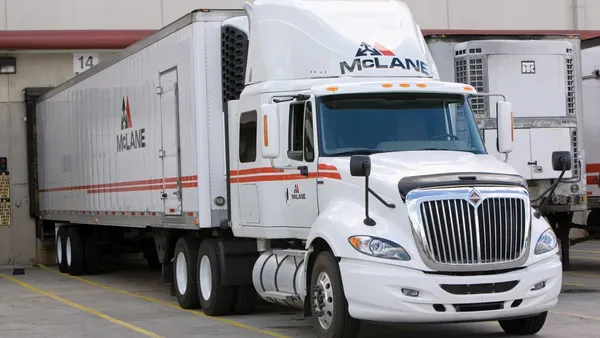Editor's Note: To see all coverage of CSCMP Edge 2017, please click here.
Dive Brief:
- DHL Supply Chain is taking another step in its multi-year effort to transition from the Exel brand with its latest move: the company's Exel Freight Connect brokerage division will now be called DHL Transport Brokerage.
- Deutsche Post DHL Group bought Exel in 2006 to create a business unit in North America. However, the terms of the deal required the company to keep the Exel brand for 10 years.
- Exel changed its name to DHL Supply Chain in 2016, and the company has slowly "flipped the switch" ever since. No changes to current operations will occur after the name change to DHL Transport Brokerage.
Dive Insight:
DHL Supply Chain’s rebranding is all about getting closer to its clients.
Ever since DHL bought Exel in 2006, the company has been thinking about each division’s branding as it seeks to ensure customers know exactly what they’re getting with each division. "We're in the process of trying to label our business units and solutions based on what they actually do." Jim Monkmeyer, president of transportation at DHL Supply Chain told Supply Chain Dive at CSCMP Edge. "A term like 'Freight Connect,' nobody knows initially, what does that mean?"
The move highlights an emerging trend in supply chain management — and specifically 3PL services — where companies with a broad range of product offerings have to ensure their clients can have both the breadth and depth they need from a single company. Third-party logistics has turned from a tactical service to a strategic service: It’s no longer enough to offer a product when shippers seek a full experience.
With that in mind, Monkmeyer also teased another recent development in DHL’s offerings: The company’s Saloodo freight marketplace — formerly called CILLOX — will launch in the U.S. with four existing customers in November.
DHL adopted the marketplace in January as an attempt to adapt to emerging technology trends. Digitization is coming for the brokerage sector, and various shippers want to at least try out the solution, according to Monkmeyer.
The problem, however, is that freight marketplaces rely on spot rates, and are therefore not an ideal solution for many customers. Large brokers have “large companies that are depending on you to move certain lanes," he said. "They don't want variability in price, necessarily."
Nonetheless, there is a subset that sees the technology as a future solution and wants to experiment. "Our goal is to offer a similar service in a more automated fashion, with fewer steps at a lower costs," Monkmeyer said. "Then, customers that want to play both sides, and want to test the real-time market as well as know they have a rate that's in the bag" can do so with DHL.
"In my mind, there's two major models out there and there is a gray area in between where people are going to want to play with certain protections," Monkmeyer said. "You know: Stick their foot in the water, see if they like it, and maybe move further down that path to a more real-time market-based rate."
3PLs are always trying to adapt to new trends in order to ensure they are providing customers exactly what they want. After all, even if they are asset-based, their business model relies on customer service. Whether it’s with a new, clearer name or a new technology offering, shippers continue to demand more — and depend more on — their 3PLs for supply chain innovation.












